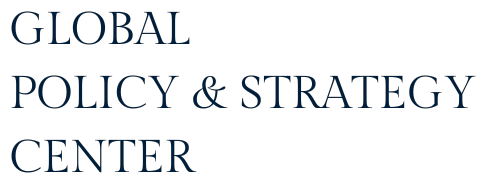In the 21st century, our world faces an array of challenges and opportunities that transcend national boundaries. Issues like climate change, economic disparities, global health crises, and geopolitical tensions require coordinated efforts on a global scale. The concept of global governance emerges as a crucial framework to address these complex issues and chart a course for a better future.
The Global Landscape of Challenges
- Climate Change: The Climate Challenge Index (CCI) reports a steady rise in global temperatures, leading to severe weather events, rising sea levels, and threats to ecosystems. International agreements like the Paris Agreement aim to mitigate climate change’s dire consequences.
- Economic Disparities: The Global Wealth Report highlights the persistent wealth gap, with the top 1% of the world’s population owning 44% of global wealth. This economic inequality poses a significant challenge to global stability.
- Global Health Crises: The World Health Organization’s (WHO) data shows the global impact of health crises. The COVID-19 pandemic, for instance, demonstrated how health issues can disrupt societies and economies across the world.
- Geopolitical Tensions: The Global Peace Index reveals the presence of significant geopolitical tensions that pose a threat to international stability.
The Role of Global Governance in Addressing Challenges
Global governance serves as the foundation for addressing these challenges and harnessing opportunities. It involves international organizations, treaties, and diplomatic efforts aimed at fostering cooperation on a global scale.
- Climate Action: International agreements like the Paris Agreement set the stage for global efforts to combat climate change and protect our planet’s future. Data from the Intergovernmental Panel on Climate Change (IPCC) informs climate policies and mitigation strategies.
- Health Security: Collaborative efforts in global health governance, as exemplified by the World Health Organization (WHO), are essential in preventing and addressing pandemics. Accurate and timely data collection and dissemination underpin these efforts.
- Peace and Security: Data from conflict monitoring organizations, such as the Institute for Economics and Peace, is vital for conflict prevention, resolution, and the maintenance of international peace and security.
- Economic Equity: International organizations like the United Nations (UN) work to address economic disparities and promote global economic stability, drawing on comprehensive economic data and indicators.
The Promise of Global Governance
While global governance faces challenges, it offers hope for a better future:
- Collaboration and Innovation: By fostering international collaboration, we can pool resources, knowledge, and innovative solutions to address global challenges more effectively. Initiatives like the United Nations Development Programme (UNDP) leverage data-driven insights to drive sustainable development.
- Peace and Stability: Through international law and diplomacy, we can reduce the likelihood of conflicts and maintain global peace and stability. Conflict resolution strategies are informed by extensive research and data analysis.
- Sustainable Development: Global governance acts as a catalyst for sustainable development, ensuring that economic growth is environmentally responsible and socially inclusive. Data from organizations like the World Bank informs development policies.
- Human Rights: International agreements safeguard human rights, promoting justice and equality for all. Extensive data collection on human rights abuses drives advocacy and policy-making.
Your Role in Shaping the Future
As we navigate the challenges and opportunities of our time, we invite you to actively engage in the mission to build a better world through global governance. Your support, engagement, and dedication can make a significant difference on a global scale.
Global governance remains pivotal in addressing the 21st century’s multifaceted challenges. With robust data, evidence-based policies, and international cooperation, we can overcome obstacles and seize opportunities to create a more equitable, sustainable, and peaceful world. The data-driven approach ensures that our global efforts are not only well-informed but also highly effective in shaping the future.
